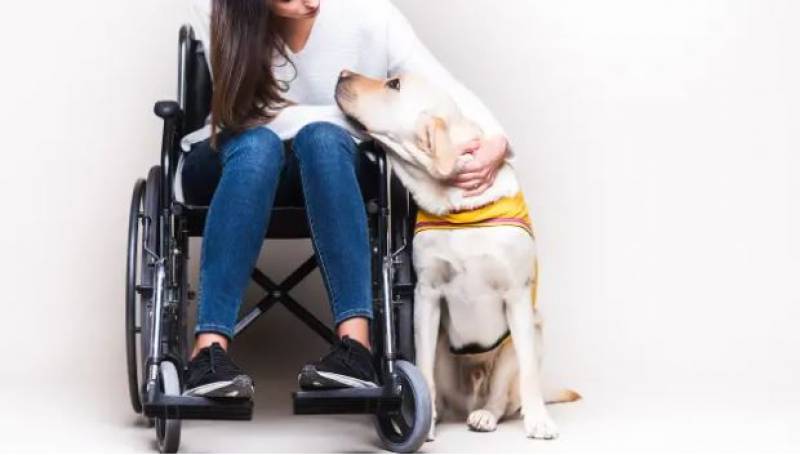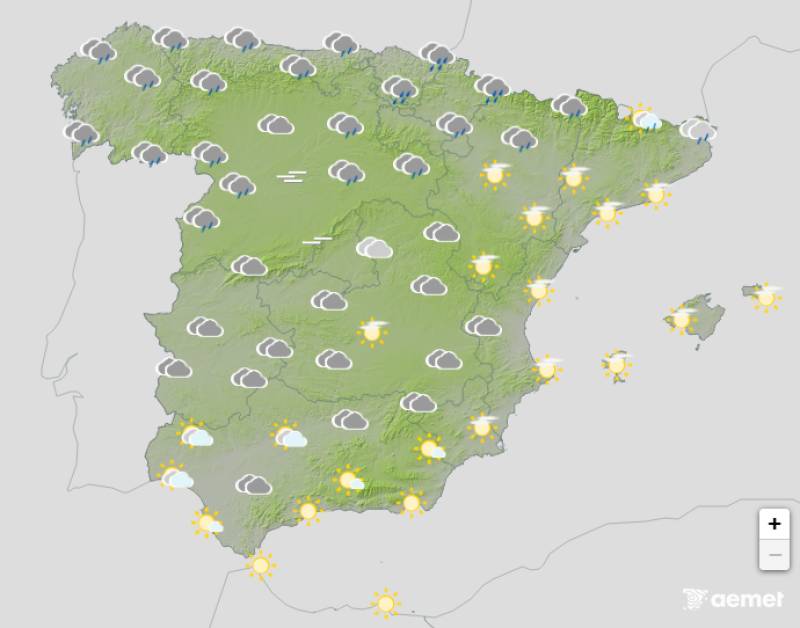

- EDITIONS:
 Spanish News Today
Spanish News Today
 Murcia Today
Murcia Today
 Alicante Today
Alicante Today
article_detail
Date Published: 20/03/2024
Spain considers expanding assistance dog regulations for people with disabilities
At the moment, only guide dogs for the blind are officially recognised as assistance animals in Spain

The Spanish government has responded to calls from different sectors to broaden the rules surrounding assistance dogs so that they will be able to accompany individuals with various disabilities, such as deafness or autism, in public spaces like buses and cinemas, similar to guide dogs for the blind.
There’s also been a push to extend this provision to include therapy dogs in hospitals, schools and care homes, although opinions vary on whether this should be addressed in a separate law.
While the regulations vary from region to region throughout Spain, the overarching national law, which hasn’t been changed since the 1980s, currently only covers assistance dogs for blind people. To address this, the Ministry of Social Rights has initiated a public consultation process to gather feedback from professionals involved with assistance dogs, therapy dogs, sports activities, animal welfare organisations and the general public.
What are assistance dogs?
In Spain, the term ‘assistance dog’ covers canines trained by specialised and officially recognised centres for the accompaniment, guidance, help or support of people with disabilities or certain recognised illnesses.
Depending on the region, the term also covers ‘medical warning dogs’, which are trained to warn of a medical emergency in people suffering from conditions like epilepsy and diabetes.
‘Signal dogs’ are also sometimes included, and their skill is to alert deaf people to everyday sounds, such as doorbells, human voices, baby monitors and alarm clocks, as well as safety-related sounds, like smoke and burglar alarms.
In the case of support animals for people with autism spectrum disorders, assistance dogs provide constant companionship throughout the child’s development. They are trained to promote the person’s independence and autonomy but these animals can also be a support during emergency situations.
Regional regulations in Spain
All communities have regulations on assistance dogs, but they differ widely.
“The Region of Murcia does not recognise assistance dogs for children with autism and the rest of the communities do; a child who lives in Murcia is discriminated against compared to another who lives a few kilometres away in Almería,” explains Rosa Moncayo, from Cuenta Conmigo, a company dedicated to the training of assistance dogs.
The Balearic Islands are one of the latest regions to approve the regulation – in 2021 – to include, along with guide dogs, medical warning or alert dogs and those that accompany people with autism spectrum disorders.
Image: Asociación Feel
staff.inc.and
Loading
See more news about animals in Spain:
OR
Sign up for the Spanish News Today Editors Roundup Weekly Bulletin to get a comprehensive email with all the week’s news for Spain, Murcia, Alicante and Andalucía.
Get a sneak peek – here are a few of our recent Subscription Bulletins:
Discount Special Offer subscription:
36.95€ for 48 Editor’s Weekly News Roundup bulletins!
Please CLICK THE BUTTON to subscribe.
Contact Murcia Today: Editorial 000 000 000 /
Office 000 000 000
























